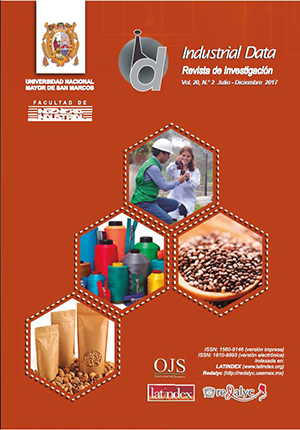SYSTEMATIC METHODOLOGY "EMU" UNIVERSITY MERCADOLÓGICO GEAR
DOI:
https://doi.org/10.15381/idata.v20i2.13956Keywords:
University marketing, educational quality, sustainable and sustainable development, university marketing gear (EMU)Abstract
Universities and public polytechnic schools for its operation and validity are evaluated and accredited based on a set of criteria, indicators and sub-criteria of quality that are part of an objective assessment, but in its complement it is necessary to apply a subjective evaluation to determine the levels Satisfaction of the users served, and based on their results design university marketing strategies. The methodological scaffolding was based on a quantitative approach applied research, a problematic - hypothetical scientific characterization, we worked the inductive - deductive, analytical, synthetic and systemic methods; A non-experimental and cross-sectional design with a correlational investigative level. The result obtained is a systematic methodology called "EMU", to evaluate the institutional image and propose university marketing strategies that allow the strengthening and positioning of the educational quality and the sustainable and sustainable development of the public university in favor of Ecuadorian society.Downloads
Downloads
Published
Issue
Section
License
Copyright (c) 2017 Wilian Pilco

This work is licensed under a Creative Commons Attribution-NonCommercial-ShareAlike 4.0 International License.
AUTHORS RETAIN THEIR RIGHTS:
a. Authors retain their trade mark rights and patent, and also on any process or procedure described in the article.
b. Authors retain their right to share, copy, distribute, perform and publicly communicate their article (eg, to place their article in an institutional repository or publish it in a book), with an acknowledgment of its initial publication in the INDUSTRIAL DATA.
c. Authors retain theirs right to make a subsequent publication of their work, to use the article or any part thereof (eg a compilation of his papers, lecture notes, thesis, or a book), always indicating the source of publication (the originator of the work, journal, volume, number and date).






